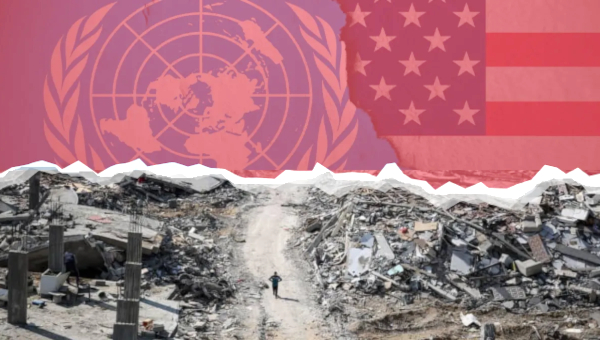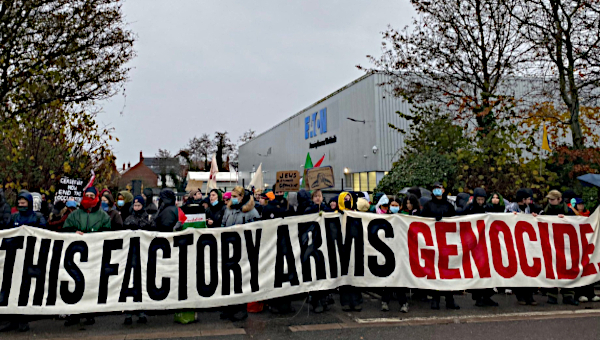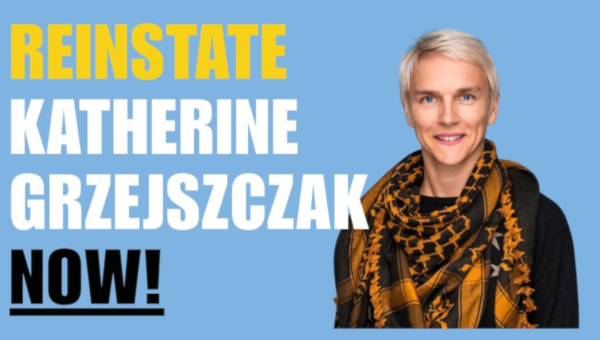Building Solidarity from Palestine to South Africa
Part 1: Moderated by Iliam Burbano – Labour For Palestine. Part 2: Dr. Amjad Barham is the head of the Palestine Polytechnic University employees union and the President of the … Watch video »
Part 1: Moderated by Iliam Burbano – Labour For Palestine.
Part 2: Dr. Amjad Barham is the head of the Palestine Polytechnic University employees union and the President of the Palestinian Federation of Unions of University Employees and Professors (PFUUPE). The Federation represents unions at all Palestinian universities in the West Bank and Gaza. Dr. Barham is a professor in applied mathematics. PFUUPE is member of the Palestinian Trade Union Coalition for BDS; PTUC-BDS, which includes almost the entirety of the blocks composing the Palestinian trade union movement, and is based on the Palestinian civil society call for BDS launched in 2005, as well as the standards adopted by the Boycott, Divestment and Sanctions National Committee (BNC). For more information on Dr. Amjad Barham, see his op-ed in the Guardian (2009), “Why Palestinians are calling for a boycott of Israeli universities.”
Part 3: Norman Otis Richmond is a radio producer, co-founder of the Black Music Association-Toronto Chapter and co-founder of the Biko-Malcolm-Rodney Coalition – speaking on the historical importance of the cultural boycott of South Africa.
Part 4: Hicham Safieddine reads two poems in Arabic and English: “Those Who Pass Between Fleeting Words” by Mahmoud Darwish; “Flowers From Hell” by Rashid Husain.
This speaking tour is an important opportunity for debate and discussion on the question of how we as trade unionists can stand in solidarity with Palestinians. As labour activists, union representatives or grassroots union members, we will be discussing a number of key issues such as,
- Why are trade unionists globally comparing the situation in Palestine with that of South African apartheid?
- What is the situation of Palestinian workers today?
- Why has there been a call by Palestinian trade unions for a campaign of Boycott, Divestment and Sanctions (BDS) modeled on the solidarity movement against South African apartheid?
There is a great urgency in building our solidarity with Palestinian workers. It is important to note that Palestinian trade unions continue to operate in and confront a daily reality of military occupation, apartheid walls and neoliberal austerity.
In Gaza, 98% of industrial operations remain idle as a result of Israel’s three-year blockade, which includes severe restrictions on electricity, heating oil, natural gas and construction materials. In the occupied West Bank, 25% of the population continues to face food insecurity as well as a complex network of 400-500 military checkpoints, roadblocks, fences, and other obstacles that separate Palestinian workers from their workplaces.
The “Building Solidarity from Palestine to South Africa” speaking tour is an important step in consolidating the worker-to-worker solidarity already established between Palestinian and Canadian and Québécois trade unionists. | Recorded in Toronto — 21 May 2011.





